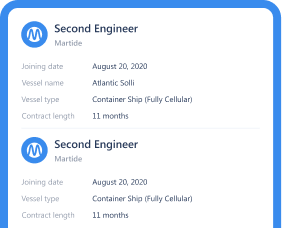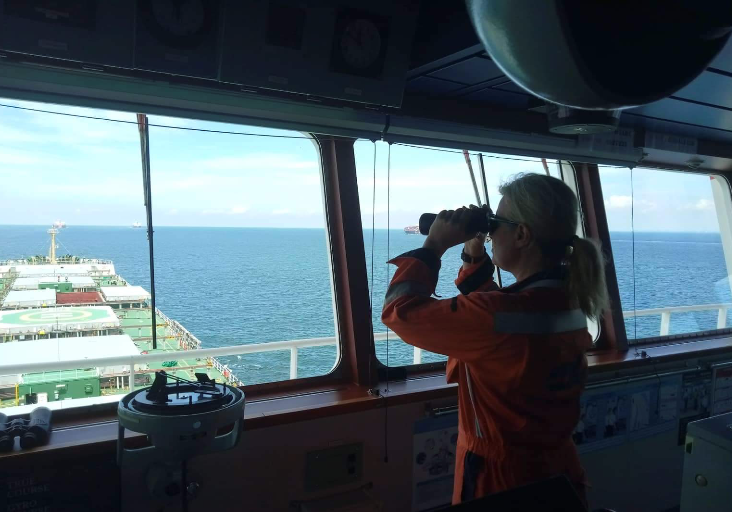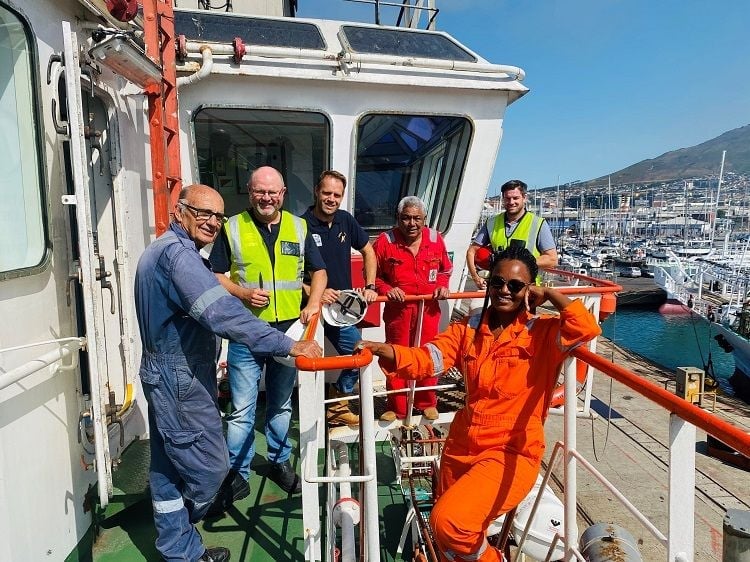Shore-Based Maritime Jobs: What Does a Maritime Lecturer Do?
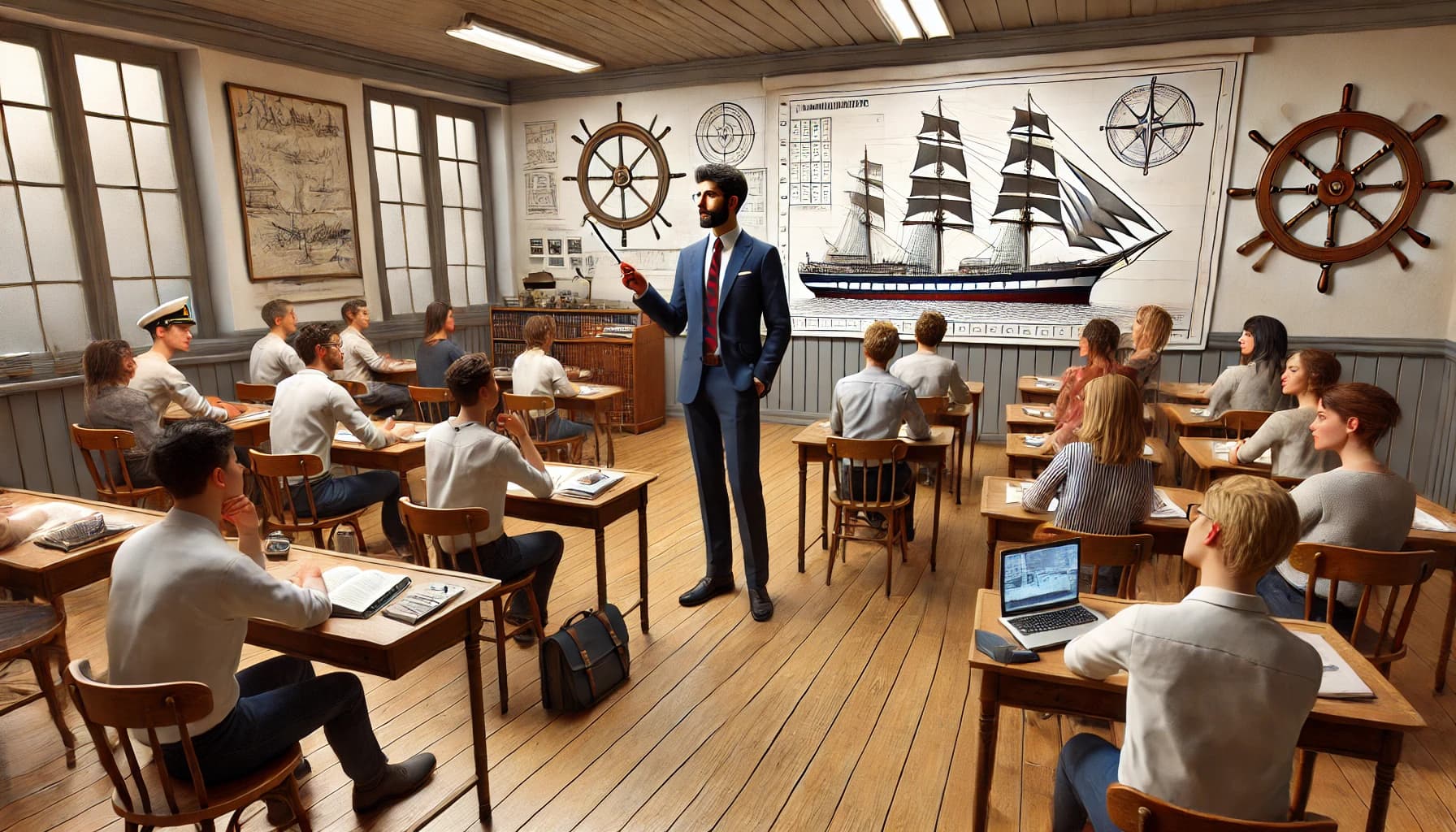
The maritime industry plays a vital role in global trade, requiring a skilled workforce to operate and manage complex operations both at sea and onshore. Maritime lecturers are at the forefront of preparing this workforce, providing education and training to students and professionals in various aspects of the shipping sector. Their work is crucial in helping to maintain safety, efficiency, and innovation in the industry.
In the Martide blog, we’ve been covering a number of different shore-based maritime jobs and this article is going to explore the responsibilities of maritime lecturers, and find out where they work, what their job entails, plus the steps you can take to become one.
What is a maritime lecturer?
Let’s cover the basics before we get started. A maritime lecturer is an educator who specializes in maritime studies, teaching topics such as navigation, ship operations, marine engineering, maritime law, safety regulations, and logistics.
These professionals may instruct aspiring seafarers, maritime managers, or engineers, helping them develop the skills and knowledge needed for successful careers in the maritime sector.
Maritime lecturers often have years of industry experience and academic expertise and may well have had a successful career at sea themselves before making the transition to a shore-based maritime job.
All this will enable them to blend practical knowledge with theoretical instruction, making them instrumental in shaping the next generation of maritime professionals.

Read more: Shore-Based Maritime Jobs: How to Become a Marine Surveyor
Where do maritime lecturers work?
Maritime lecturers can be found molding the next generation of seafarers - as well as helping current personnel hone their skills and learn about the latest technologies - a number of places, including:
1. Maritime colleges and universities
Institutions offering maritime-focused degrees and certifications are common employers. These include universities with maritime programs and dedicated maritime academies. Courses may range from bachelor's and master's programs to short-term certifications and professional training.
2. Maritime training centers
Maritime training centers provide hands-on education, including mandatory certifications such as STCW (Standards of Training, Certification, and Watchkeeping) compliance courses. These centers focus on practical skills like firefighting, safety drills, and navigational techniques.
3. Nautical institutes
Nautical institutes cater to specific maritime professions, such as ship Captains (otherwise known as the ship’s Master), deck officers, or marine engineers. Lecturers here may provide advanced training in navigation, vessel handling, or technical systems.
4. Corporate training divisions
Shipping companies, offshore operators, and port authorities often have in-house training departments. Maritime lecturers in these roles deliver corporate training programs, ensuring employees stay updated on regulatory requirements and best practices.
5. Research and consultancy organizations
Some maritime lecturers work with think tanks or consultancy firms, conducting research, delivering specialized workshops, and providing insights to industry stakeholders.
6. Online education platforms
With the growing demand for remote learning, maritime lecturers can also teach through online platforms, offering flexibility to students and professionals worldwide, even when they're onboard a vessel.
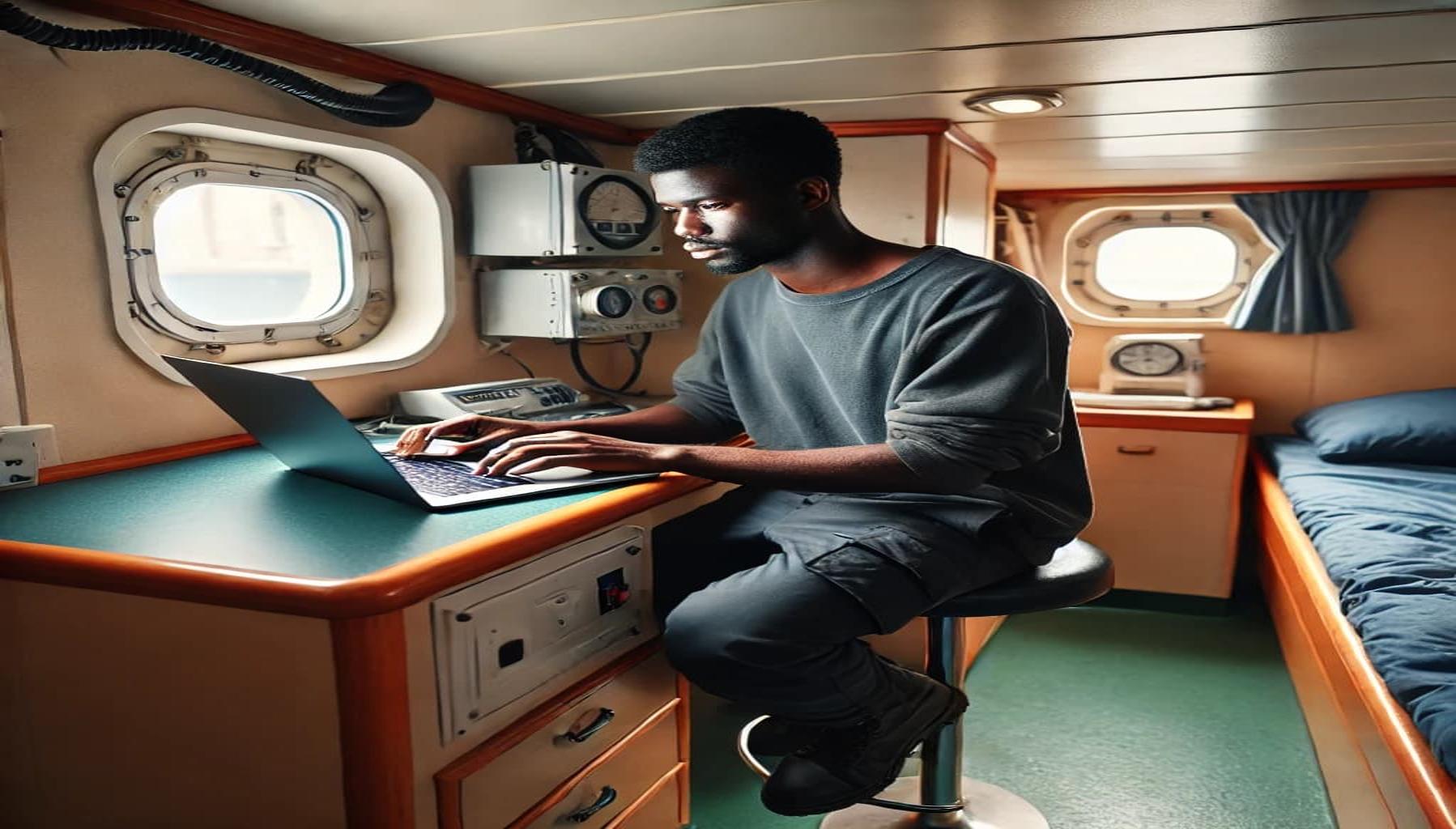
Read more: Shore-Based Marine Jobs: Maritime Recruitment Officer
What does a maritime lecturer’s job entail?
Given the wide range of places that a marine lecturer can be found at work, it’s fair to say that their actual role encompasses a fair few different tasks and responsibilities:
1. Delivering lectures and training
Lecturers design and deliver courses tailored to maritime studies. This includes creating lesson plans, preparing presentations, and conducting practical sessions. Subjects might include marine navigation, meteorology, cargo handling, maritime law, and environmental regulations.
2. Developing curriculum
Maritime lecturers often contribute to curriculum development, ensuring courses are aligned with international standards, such as those set by the International Maritime Organization (IMO).
3. Hands-on training
Practical education is a significant part of maritime training. Lecturers may oversee simulator-based training, fire drills, lifeboat exercises, and engine room operations, providing students with real-world skills.
4. Assessing and certifying students
Evaluating students through exams, projects, and practical tests is a core responsibility. Maritime lecturers also certify trainees, confirming their readiness to take on jobs in the maritime industry.
5. Staying updated on industry trends
The maritime sector evolves constantly, with advancements in technology, regulations, and sustainability practices. Lecturers must stay informed to provide relevant education and training.

6. Research and development
Many maritime lecturers engage in research, exploring topics like maritime safety, logistics efficiency, and environmental impact. They may publish papers, attend conferences, or collaborate with industry leaders.
7. Mentorship
Beyond teaching, maritime lecturers often mentor students, guiding them on career paths in the shipping sector, helping with internships, and fostering connections within the maritime industry.
8. Collaborating with industry
Maritime lecturers may work with shipping companies, regulatory bodies, and equipment manufacturers to ensure their teaching reflects current industry practices and innovations.
Read more: Shore-Based Maritime Jobs: Marine Regulatory Authority Jobs
How to become a maritime lecturer
Becoming a maritime lecturer requires a combination of industry experience, academic qualifications, and teaching skills. Here’s a step-by-step guide:
1. Gain maritime experience
Practical experience is essential. Most maritime lecturers have worked in roles such as deck officers, marine engineers, or ship Masters. This real-world knowledge is invaluable for teaching.
To gain this experience:
- Pursue a career at sea by earning certifications such as Officer of the Watch or Chief Engineer qualifications.
- Accumulate years of sea time in a relevant position.

2. Obtain academic qualifications
While practical experience is critical, academic credentials are also important for becoming a maritime lecturer. These typically include:
- A bachelor’s degree in a maritime-related field, such as marine engineering, navigation, or logistics.
- Advanced degrees, such as a master’s or PhD, may be required for positions at universities or research institutions.
3. Earn teaching certifications
Teaching qualifications can enhance your credibility and effectiveness as an educator. Many maritime training centers and academic institutions prefer candidates with formal teaching certifications.
Consider earning:
- A Certificate in Education (CertEd) or Postgraduate Certificate in Education (PGCE).
- Industry-specific teaching certifications, such as Train the Trainer (IMO Model Course 6.09).
4. Build subject matter expertise
Maritime lecturers often specialize in specific fields, such as navigation, maritime law, or safety training. Deep expertise in one or more areas makes you a valuable candidate and therefore employee.
5. Develop communication skills
Strong communication and presentation skills are essential for teaching complex concepts clearly and engagingly. Experience as a mentor, trainer, or workshop leader can help you build these skills.
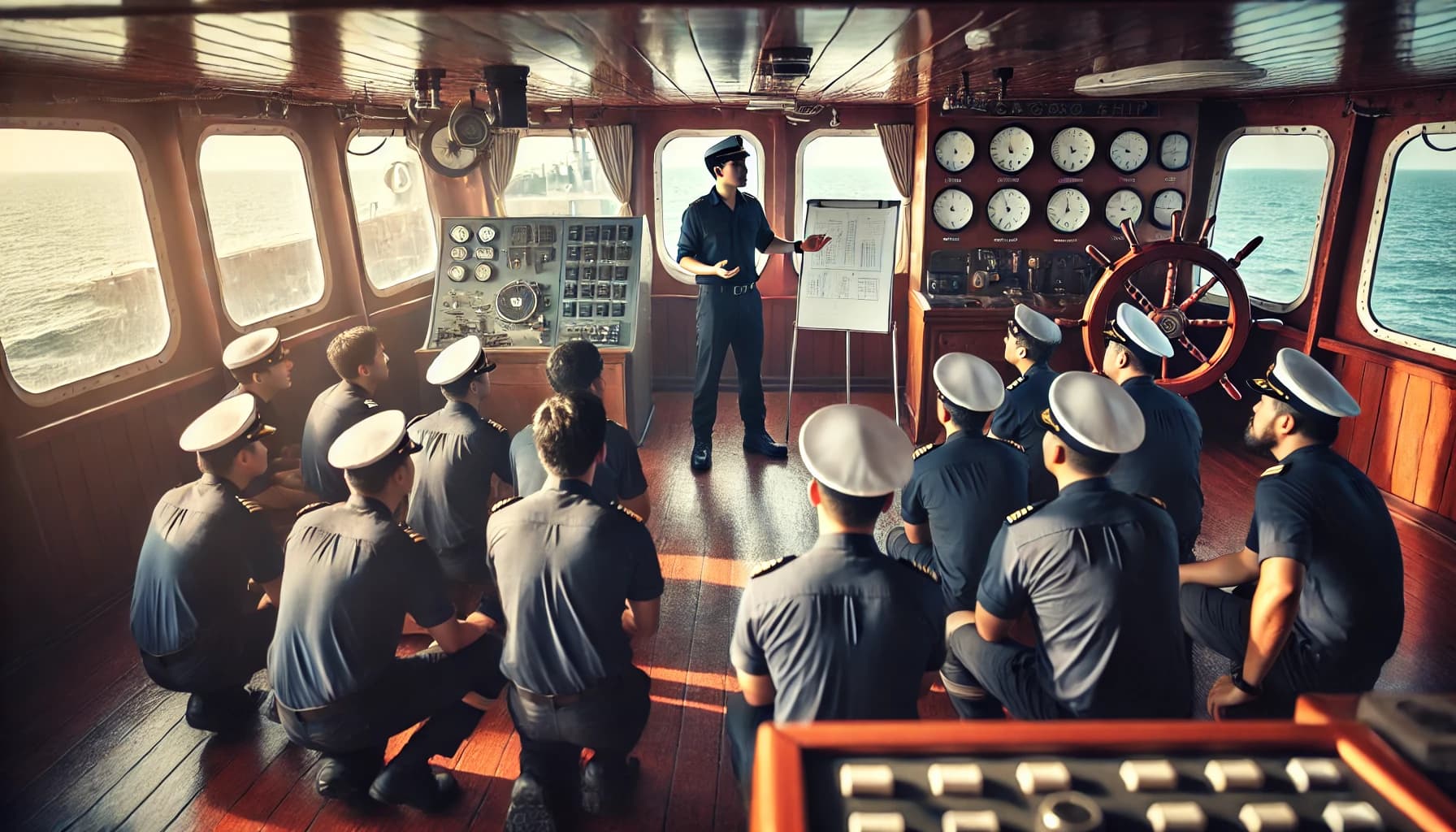
6. Stay current with industry trends
Continuing professional development (CPD) is vital for maritime lecturers. Stay updated on regulations, technological advancements, and best practices through:
- Industry conferences
- Professional networks
- Further training and certifications
7. Apply for maritime lecturer positions
Once you’ve built your experience and credentials, you can begin applying for roles. Start with maritime colleges, training centers, or corporate training divisions. Highlight your industry background, teaching qualifications, and area of expertise in your application.
Read more: Shore-Based Maritime Jobs: What is a Shipbroker Job?
Challenges and rewards of the job
Challenges:
- Keeping pace with change: The maritime industry evolves rapidly, requiring lecturers to continually update their knowledge.
- Balancing theory and practice: Effectively blending academic concepts with practical skills can be demanding.
- High responsibility: The role involves preparing students for high-stakes careers where safety and precision are critical.
Rewards:
- Shaping future professionals: Maritime lecturers play a crucial role in developing the next generation of maritime experts.
- Variety: Each day brings new challenges, whether teaching a class, conducting research, or working on curriculum development.
- Career longevity: The demand for skilled maritime educators is steady, offering long-term career stability.
- Global opportunities: The maritime sector is international, providing opportunities to work and teach worldwide.
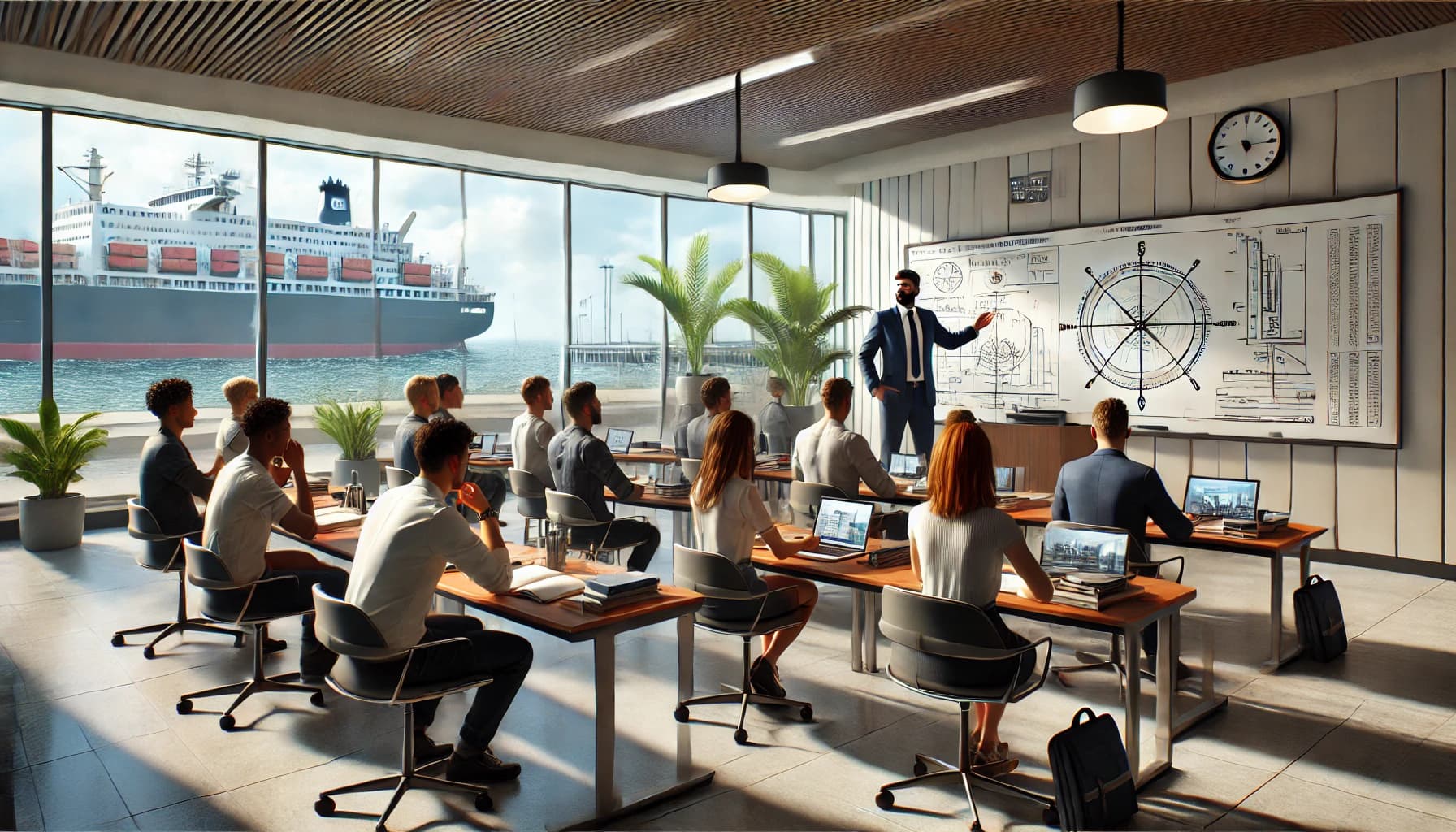
Is a shore-based maritime job as a lecturer right for you?
A career as a maritime lecturer is both challenging and rewarding, offering the chance to share expertise, influence the future of the maritime industry, and contribute to global trade and sustainability.
Whether working in academic institutions, training centers, or corporate settings, maritime lecturers are essential in ensuring the industry remains safe, efficient, and innovative.
For those with a passion for teaching and a strong background in the maritime sector, this career path offers a unique opportunity to leave a lasting impact on an industry that connects the world.
Read the previous article in this series: Shore-Based Maritime Jobs: Port & Harbor Management Jobs

Eve Church
Eve is Martide's content writer, publishing regular posts on everything from our maritime recruitment and crew planning software to life at sea. Eve has been writing professionally for more than two decades, crafting everything from SEO-focused blog posts and website landing pages to magazine articles and corporate whitepapers.
UK
